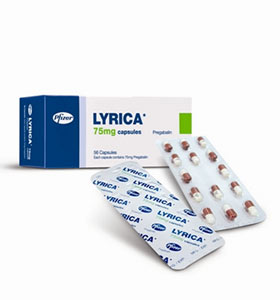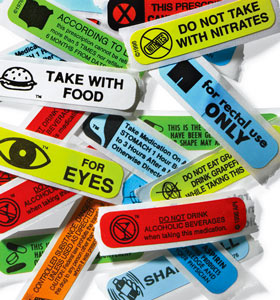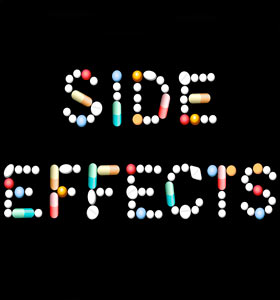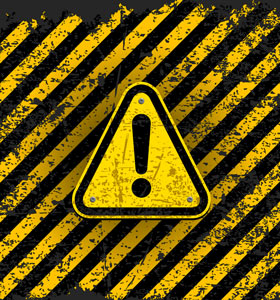Lyrica: 12 Things You Need to Know
Medically reviewed on May 29, 2018 by L. Anderson, PharmD.
View as slideshow
Lyrica: It's Not Just for Seizures Anymore

Lyrica (pregabalin) was originally approved in 2004 as an anticonvulsant.
Today it's also widely used to treat:
fibromyalgia
nerve pain associated with diabetic neuropathy
shingles (herpes zoster)
spinal cord injury.
Lyrica works by slowing down impulses in the brain that cause seizures. It also affects neurotransmitters (chemicals) in the brain that send pain signals across the nervous system.
Lyrica comes as a capsule in many strengths, and for those that prefer, it also comes as an oral solution.
In October 2017, the FDA approved Lyrica CR extended-release tablets as a once-daily therapy for the management of neuropathic (nerve) pain associated with diabetic peripheral neuropathy and postherpetic neuralgia. Lyrica is believed to to calm overactive nerves for these uses.
Lyrica CR did not receive approval for the management of fibromyalgia and its effectiveness as adjunct therapy for partial onset seizures has not been demonstrated.
Lyrica Use in Seizures

Lyrica is used as an add-on therapy to other medications for treatment of partial onset seizures in adults. How does a partial seizure occur?
Abnormal electrical activity in the brain triggers a seizure. When the electrical activity is confined to just one part of the brain, it is known as a partial onset seizure.
In a simple partial seizures, consciousness is not lost, the seizure may only last one minute, and it can affect senses, like how you see, taste, or smell.
In complex partial seizures, the overactive nerves occur across the entire brain, and consciousness is lost briefly, almost like a staring spell. You may appear awake and alert, but your brain is not really aware of it's surroundings.
Lyrica Dosing: Partial Onset Seizures

Dosing for any kind of seizure is a very individualized component of therapy. Your doctor will evaluate your dose on a regular basis and will track seizure activity.
In general, total doses between 150 to 600 mg per day, divided in 2 or 3 doses, are effective for add-on therapy in the treatment of partial onset seizures in adults. Higher doses may result in more side effects.
Lyrica is mainly excreted through the kidneys, and your dose for any use may need to be decreased if you have kidney disease. Your doctor will know how to adjust your doses based on a calculation of your kidney function.
Lyrica Use in Fibromylagia

Fibromyalgia is thought to be due to overactive nerves due to the imbalance of natural chemicals found in the body.
These nerves send messages throughout the body that may be responsible for the pain and tenderness that occurs in fibromylagia.
Lyrica is thought to help to "quiet" this pain by calming the overactive nerves, and reducing the excess electrical signals sent by the nerves.
Lyrica Dosing: Fibromylagia
If you have fibromyalgia, you know it can cause muscle and joint pain almost anywhere in the body, and lead to sensitive areas where pressure is painful.
Lyrica was the first drug FDA approved to treat the chronic pain of fibromyalgia. The Lyrica dose, given as an oral capsule, usually starts at 75 mg two times a day (150 mg/day). The dose may be increased to 150 mg two times a day (300 mg/day) after 1 week.
If you tolerate this dose, but it is still not fully effective, your doctor may decide to increased your dose to 225 mg two times a day (450 mg/day). As with other uses, if you have kidney problems, your dose may need to be lowered.
Pain After Shingles: It Hurts
Who knew chickenpox could cause such an extra painful illness?
Herpes zoster, also called shingles, results from activation of a virus that stays in your nerves following chickenpox.
Shingles causes painful fluid-filled blisters on your skin.
About 1 in 5 people who get shingles will also have severe, long-lasting pain afterwards, called postherpetic neuralgia.
Lyrica and Lyrica CR are approved to treat the pain that may occur after a case of shingles clears up (postherpetic neuralgia). Begin Lyrica dosing at 75 mg two times a day, or 50 mg three times a day (150 mg per day). Your doctor may increase your dose to 300 mg per day within 1 week if needed and if you are tolerating the drug. Lower doses are also needed in kidney impairment.
The long-acting form of Lyrica is also approved for shingles pain.
Your doctor may begin dosing Lyrica CR at 165 mg once daily and increase to 330 mg once daily within 1 week based on your individual response and tolerability.
The maximum dose of Lyrica CR for postherpetic neuralgia is 660 mg once daily, although a higher risk for side effects occurs with these higher doses.
Lyrica CR should be administered once daily after an evening meal.
Common Side Effects: Lyrica and Lyrica CR

As with most drugs, Lyrica has side effects. Lyrica has been associated with:
Drowsiness
Dizziness
Lack of coordination (ataxia)
Weight gain
Dry mouth
Blurred vision
Swelling of hands or feet
Confusion
Lyrica is also classified as a schedule V controlled substance because there have been reports of euphoria, improved happiness, excitement, or calmness, and a "high" similar to marijuana.
Lyrica CR has similar side effects as seen with Lyrica.
Serious Side Effects: Lyrica Allergic Reactions

While most serious side effects with Lyrica occur in only a very small number of people, it is important you are aware of them.
Serious, possibly life-threatening allergic reactions like angioedema or allergic reactions can occur with Lyrica or Lyrica CR. If you notice swelling of your face, mouth, lips, gums, tongue, throat or neck or if you have any trouble breathing or have a rash, hives or blisters, you may be having an allergic reaction that requires immediate care.
Patients or caregivers should stop Lyrica or Lyrica CR and call the doctor or 911 right away if you notice any serious allergic reactions.
Serious Side Effects: Suicidal Thoughts or Actions

Another uncommon but important side effect is suicidal thoughts or actions in patients taking any seizure medication - including Lyrica and Lyrica CR.
Lyrica can lead to thoughts or actions of suicide in about 1 in 500 people. Changes in mood or behavior may include:
worsened depression
anxiety, restlessness, trouble sleeping
panic attacks
anger, irritability, agitation, aggression
dangerous impulses or violence
extreme increases in activity or talking.
Patients, family members or caregivers should call the doctor right away if they notice behavioral changes, suicidal thoughts or actions, or thoughts or evidence of self harm.
Don't Stop Lyrica Cold Turkey

Other than if you have a severe, life-threatening allergic reaction, you should not abruptly stop taking Lyrica or Lyrica CR.
Why is this? With many medications, especially those that work in the brain, if you suddenly stop taking the medication, side effects may kick in. With Lyrica, these effects may include:
headaches
upset stomach or nausea
diarrhea
trouble sleeping
increased sweating
anxious feeling.
If you have epilepsy, you may also have seizures more often.
Talk to your doctor before you decide to stop taking Lyrica. If treatment must be stopped, your doctor may slowly discontinue (taper) your medication dose over a period of time to lower the risk of withdrawal side effects, usually at least a week.
Lyrica: Keep an Eye on These Drug Interactions

There is a possibility of drug interactions with Lyrica.
The use of an angiotensin converting enzyme (ACE) inhibitor for example, lisinopril, may increase the chance for swelling and hives.
Any drug that makes you sleepy, for example,narcotic painkillers like hydrocodone or oxycodone, or medicines for anxiety like lorazepam (Ativan), may further increase the risk for sleepiness or dizziness when taken with Lyrica or Lyrica CR. You should not drive if you are combining these types of medications.
Certain diabetes drugs like rosiglitazone or pioglitazone may lead to weight gain or swelling.
Tell your doctor and pharmacist about all the medicines, vitamins or herbal supplements you take.
When Will Lyrica Go Generic?

Let's face it - brand name drugs can be expensive.
But the generic for Pfizer's Lyrica - pregbablin -- won't be available until around December 2018. The FDA has tentatively approved many generic versions, but they can't be marketed yet.
A legal court case in 2014 blocked the marketing of the generic formulation. Lyrica is an important revenue generator for Pfizer's portfolio, particularly after they lost their patent on mega-blockbuster Lipitor.
However, sales remain hot. Sales of Lyrica topped $3.4 billion in 2017, making it Pfizer’s second biggest selling product, after pneumococcal vaccine Prevnar 13. Not to mention that Pfizer spent $216 million promoting Lyrica in direct-to-consumer TV ads in 2017, according to FiercePharma.
Lyrica CR was approved in 2017 and generics for the long-acting form will not be available for many years.
Sources
The top 15 drug patent expirations of 2018. FiercePharma. Accessed May 29, 2018 at https://www.fiercepharma.com/special-report/lyrica-1
Product Labeling. Lyrica CR. October 2017. Pfizer. New York, NY. Accessed May 29, 2018 at https://www.drugs.com/pro/lyrica-cr.htmlOctober
Lyrica (Pregabalin) Capsules. Drug Approval Package. Drugs@FDA Accessed May 29, 2018 at http://www.accessdata.fda.gov/drugsatfda_docs/nda/2004/021446_LyricaTOC.cfm
Lyrica (pregabalin) [Package Insert] Parke-Davis Div of Pfizer Inc Revised: 12/2016. Accessed May 29, 2018 at https://www.drugs.com/pro/lyrica.html
Lyrica (pregabalin). Pfizer Consumer Information 2018. Accessed May 29, 2018 http://www.lyrica.com/Fibromyalgia/fibromyalgia-introduction
Decker S. Pfizer Wins Ruling to Block Generic Lyrica Until 2018. Bloomberg Business. Accessed May 29, 2018 at https://www.bloomberg.com/news/articles/2014-02-06/pfizer-wins-ruling-to-block-generic-lyrica-until-2018
Lyrica Drug Profile. Drug Patent Watch. Accessed May 29, 2018 at https://www.drugpatentwatch.com/p/tradename/LYRICA
https://www.drugs.com/slideshow/lyrica-faqs-1173

No comments:
Post a Comment
All comments welcome but advertising your own service or product will unfortunately result in your comment not being published.